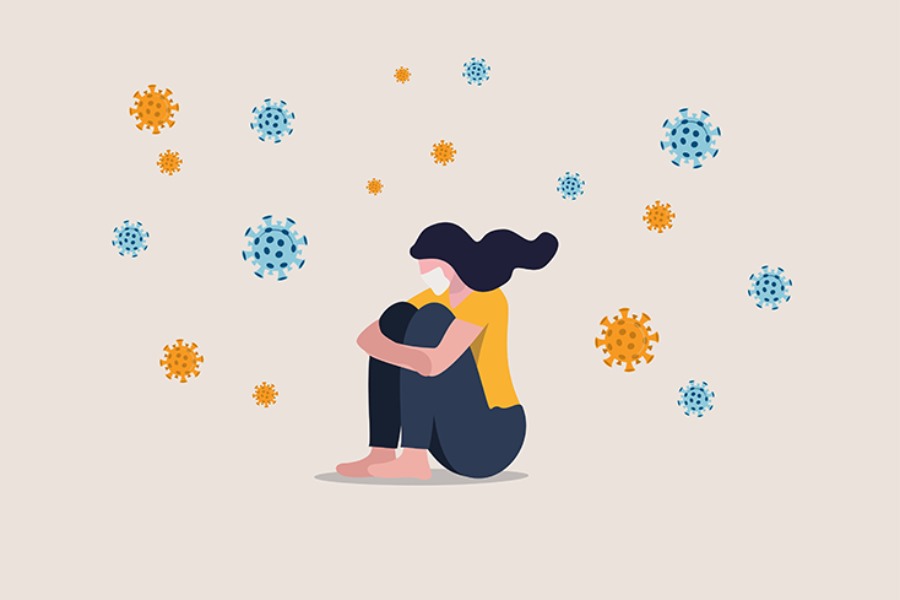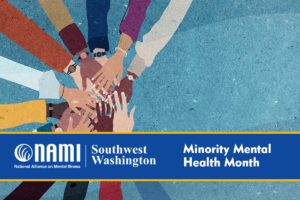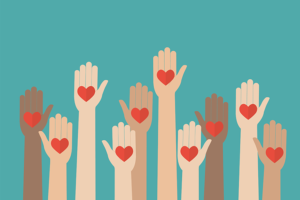By Rachel Sullivan, LCSW
People who have experienced abuse can struggle with the ability to trust others. A common refrain from trauma survivors is: If I was hurt by someone who was supposed to take care of me, how can I trust anyone else?
Unsurprisingly, some will cope by relying only on themselves. For example, I’ve worked with countless trauma survivors who describe themselves as excellent “planners.” They are the friend who designs the itinerary ahead of time, or the family member who diligently researches every option. For these individuals, their planning skills serve to help them feel empowered and in control, which is particularly important in the long-term recovery from abuse. One of the most influential interventions of trauma-informed care is restoring a sense of power and control over time in different aspects of a survivor’s life. By reclaiming their control, a survivor is undoing some of the long-term damage done by their abuser. Many survivors find healing in gaining independence, autonomy and self-worth.
Since 2020, however, COVID-19 has brought to light an interesting tension: How can we rely only on ourselves when our health is dependent on the behaviors of the people around us?
Trauma Survivors May Face Unique Stressors And Challenges
People have been encouraged (or required) to get vaccinated, wear masks, socially distance, etc. as a way to maintain individual health and safety — but also protect the greater good. And our individual safety relies on a widespread commitment to these protocols. There is only so much sanitizing and masking I can do to keep myself safe. If someone else chooses to enter the room I’m in, my health is now dependent on that person’s actions.
This can be extremely anxiety-provoking for someone who already struggled to trust people before this global public health matter.
Survivors of interpersonal abuse — like sexual violence, intimate-partner abuse or family abuse — may have noticed an increase in anxiety in the last few years. They may have even noticed increased conflict in their relationships or a decreased ability to trust new people in their lives. Collectively, we have had to rely on other people during this pandemic, which can be exceedingly difficult for someone who has been working on trauma recovery.
Self-Care Must Be A Priority
To those who are navigating this complex situation while coping with past trauma, there is hope. Unfortunately, there’s no easy solution to addressing this increased anxiety, but what you can focus on is strengthening your confidence in what you can control. If it feels good to wear three masks at the same time, then do it. If it brings you comfort to sanitize your packages before bringing them into your home, then do it. Your sense of safety and control matters.
Survivors I’ve worked with have told me that they want to do these things, but they’re afraid of being judged. People may roll their eyes or make unhelpful comments, but there’s no shame in prioritizing your self-care. You can’t control the behaviors of others, but you can control what you do to make yourself feel better.
If actions like these are starting to impact your ability to perform daily tasks or strain your relationships, then perhaps it’s gone too far — and you may want to consider talking to a mental health professional to develop more effective tools for dealing with your trauma. But if not, then pause and try to consider them as positive coping mechanisms. Try to let go of self-judgement and own the power of self-care. Your trust issues of others may still be triggered, but at least you’ll know that you are doing what you can to maximize your safety and health.
Rachel Sullivan, LCSW is a clinician with 10 years of experience providing psychotherapy to survivors of sexual violence, intimate-partner abuse and other crimes, as well as consultation to medical providers. Rachel loves to write about her clinical passions and the inspiring survivors she is privileged to meet.




